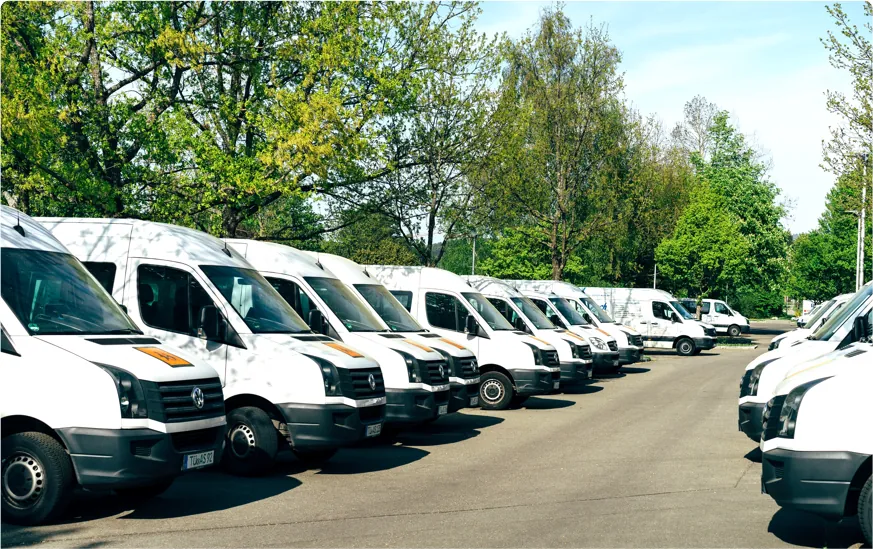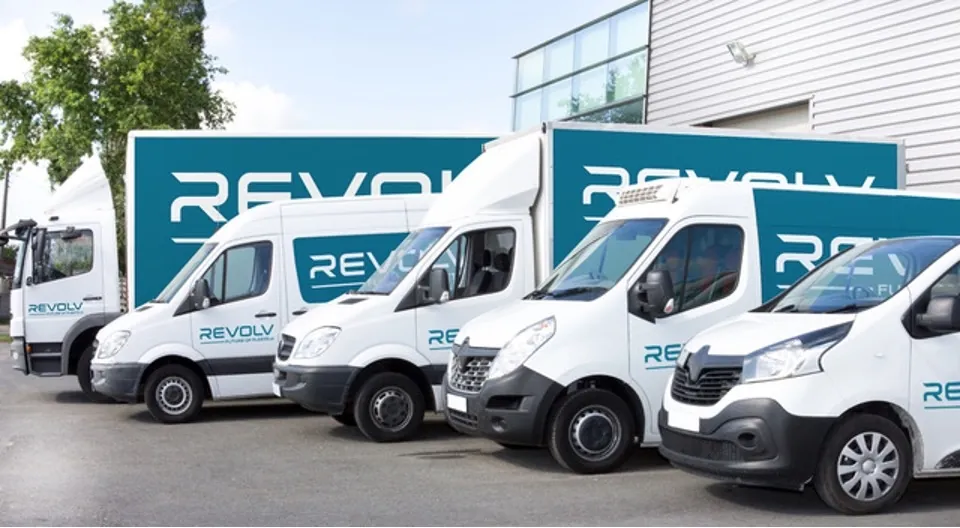What is Advanced Clean Fleets (ACF)?
As we discussed in the how can you comply with the CARB Advanced Clean Fleets (ACF) post, the Advanced Clean Fleets (ACF) regulation is part of the California Air Resources Board’s (CARB) effort to accelerate the adoption of zero-emission trucks by the state’s medium- and heavy-duty vehicle fleets. This transition to zero-emission vehicles (ZEVs), specifically trucks in Classes 2b through 8, will cut emissions of greenhouse gasses and harmful air pollutants over the next decade, improving the health of Californians and advancing the state’s climate goals.

The regulation is a critical part of the State’s larger strategy to increase clean, affordable transportation options such as zero-emission technologies. ACF aims to promote innovative methods to improve freight activity and the overall transportation system efficiency in California. In total, the rule aims to yield an estimated $26.5 billion in public health benefits and $48 billion in reduced costs for California’s fleets. By transitioning California’s truck markets to EVs, by 2035, nearly half of all semi-trucks on the state’s highways are expected to be zero-emission. That number is expected to rise to around 70% by 2042.
Why is ACF enforcement being delayed?
On December 28, 2023, CARB announced that it would delay enforcement of the Advanced Clean Fleets regulation, which was originally set to take effect on January 01, 2024. This is due to three separate lawsuits that CARB is facing in response to ACF—two in California’s state courts and one in federal court. As part of the delay, CARB stated that they would not start enforcing ACF until the U.S. Environmental Protection Agency (EPA) granted California a waiver for implementing stricter regulations than current federal policy or determined a waiver is not necessary.
The enforcement delay comes on the heels of a lawsuit against CARB filed by the California Trucking Association (CTA) requesting a preliminary and permanent injunction to stop CARB from enforcing ACF. As part of the lawsuit, CTA has argued that CARB failed to receive an EPA waiver allowing the implementation of ACF, and, that ACF has violated the Federal Aviation Administration Authorization Act (F4A), a 1994 law that blocks states from passing any regulation that could impact the “price, route or service” of a trucking company.
How does the delay in ACF enforcement impact California’s fleets?
California fleet owners and operators should view the delay as just that—a delay, not a dismissal. CARB has already filed a waiver request with the EPA to begin the enforcement of ACF, and there’s an overarching precedent that the EPA will grant the waiver. In fact, in March 2023, the EPA granted a similar waiver for California’s Advanced Clean Trucks (ACT) rule, ACF’s companion mandate impacting truck production. Importantly, despite the delay in ACF enforcement, CARB has not altered or delayed any of the requirements for fleets under the ACF regulation.
The current legal challenges to ACF should not overshadow the economic and environmental benefits that electric fleets will bring, both to corporations and to California. Fleet electrification does not have to be daunting, but it will take time and ample planning. Fleets that delay their transition to zero-emission vehicles will be forced to rush key decisions and act hastily to remain in compliance with regulations. On the other hand, fleets that start their electrification process now will be prepared to comply with ACF regulations when CARB inevitably begins enforcement, and these fleets will also reap tangible, long-term economic benefits compared to their peers.
How can my fleet get ahead of Advanced Clean Fleets?
If you operate a fleet in California and are seeking guidance on zero-emission vehicle adoption, a full-service electric fleet solutions provider like Revolv can help minimize disruption while maximizing progress. Whether you are in the early stages of planning for eventual ACF compliance or getting a head start to meet your company’s ESG goals, Revolv can deliver a single-partner solution for deploying, charging, and integrating electric vehicles seamlessly into your operations.
Ultimately, fleets can get ahead of ACF by partnering with Revolv to offload the most difficult tasks and position their fleets for a successful transition to zero-emission vehicles in the months and years to come.
